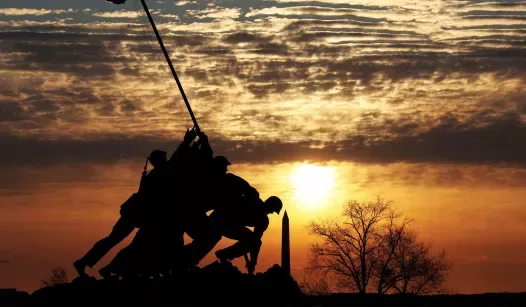In recent discussions surrounding national commemoration, the president has highlighted a significant cultural trend: the overwhelming focus on victims, often overshadowing the contributions of heroes. This observation marks a pivotal moment in how we approach remembrance in America, as the administration seeks to shift the narrative towards celebrating those who have made remarkable sacrifices and contributions to our society.
The tendency to emphasize victimhood in commemorative practices has been prevalent in various contexts, from memorials to public discourse. While acknowledging the pain and suffering of individuals is essential, it is equally important to recognize and honor the heroes who have played crucial roles in shaping our nation’s history and values. This call to action invites a broader conversation about the stories we choose to tell and the legacies we wish to uphold.
Celebrating heroes serves not only to honor their sacrifices but also to inspire future generations. By highlighting the achievements and bravery of individuals who have made a positive impact, we can foster a culture of resilience and hope. This shift encourages us to reflect on the values that unite us as a nation—courage, integrity, and the willingness to stand up for what is right.
As we navigate this changing landscape, it is essential to engage in discussions about the figures we commemorate. Who are the heroes that resonate most with our values? How can we ensure that their stories are told in a way that inspires and educates? By addressing these questions, we can create a more balanced narrative that honors both the struggles of victims and the triumphs of heroes.
This cultural shift is not merely about altering the focus of our commemorations; it reflects a deeper understanding of the human experience. Recognizing heroes does not diminish the experiences of victims; rather, it enriches our collective memory by acknowledging the complexities of our history. It allows us to celebrate the resilience of the human spirit while also providing a platform for healing and reflection.
In the coming months, we can expect to see initiatives aimed at promoting this new approach to commemoration. Educational programs, public events, and community discussions will play a crucial role in redefining how we honor our heroes. By actively participating in these conversations, we can contribute to a more inclusive and inspiring narrative that reflects the diverse tapestry of American life.
As we embrace this change, it is vital to remember that the stories of heroes are often intertwined with those of victims. The struggles faced by individuals can serve as a backdrop for the heroic acts that emerge in response. This interconnectedness highlights the importance of a holistic approach to commemoration—one that honors the full spectrum of human experience.
In conclusion, the president’s call to celebrate heroes represents an important step towards a more balanced and inclusive commemorative culture in America. By shifting our focus, we can inspire future generations to appreciate the sacrifices made by those who came before us while fostering a sense of hope and resilience for the challenges that lie ahead. Let us embrace this opportunity to honor our heroes and create a narrative that uplifts and unites us all.
